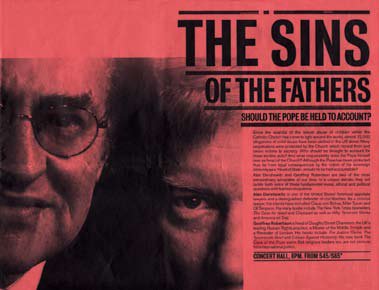
Sydney Opera House, Festival of Dangerous Ideas 2-3 October 2010
In a riveting, mock-trial debate billed as the star turn of the two-day “Festival of Dangerous Ideas,” held at the Sydney Opera House, Alan Dershowitz was pitted against the renowned UK human rights activist Geoffrey Robertson. Dershowitz presented a brilliant, successful and witty defence of the Pope, refuting Mr. Robertson’s argument that the Pope be called before the International Criminal Court in the Hague and arraigned on charges of crimes against humanity for his sins of omission relating to child abuse in the church. There will be more about this debate further on in this article.
I happened to be in Sydney during “The Festival of Dangerous Ideas,” and fortunate enough to attend that debate, as well as other lectures.
Some facts about this fascinating mind-stretching, brain-expanding experience might be of interest. In the program, the widely anticipated “Festival of Dangerous Ideas,” listed the topics with the tantalizing, irresistible subheading: “An Idea That is Not Dangerous is Not Worthy of Being Called an Idea at All,” and stated that its intention was to arouse interest, to stimulate, enrage, aggravate, provoke, excite, engage and entertain the participants, that is, the audience.
Mission accomplished.
“The Festival of Dangerous Ideas,” (this was its second year), was held under the auspices of the St. James Ethical Center and the Sydney Opera House. The setting itself is glorious, the stunning Opera House on the Sydney harbor with boats gliding to and fro paying homage to it, the crowds of people circling and eyeballing it and the harbor throughout the day and, far into the evening when the scene is transformed into a fairyland with lights sweeping a magical glow over the famed Harbor Bridge and along the waters.
The two-day festival continued from morning to late, late evening, during which more than twenty five lectures and debates were held back-to-back, and at the same time, in several of the auditoria, making the choice of what to attend difficult if not impossible. The mind-boggling talk fest played to sell out audiences and featured the widest variety of topics ranging from the Dershowitz-Robertson debate, to such thorny, ‘dangerous’ subjects as freedom, justice, terrorism, politics, religion, art, parenting, robots, climate change and economics. The topics chosen were slyly enhanced by provocative titles, among them: “What we can Learn from Terrorists,” “Why it's always the Woman’s Fault,” “The Worst Mother in the World,” and "Stuff White People Like.”
The Dershowitz- Robertson debate was held in the main auditorium of the Opera House which holds upwards of 3,000 people and was completely sold out. Mr Robertson, QC, is a widely respected, well-known lawyer and human rights activist who has written several books on the subject, the latest of which caused an uproar during the recent visit of the Pope to Ireland: “ The Case of the Pope: Vatican Accountability for Human Rights Abuse.” Mr Robertson was actively involved in the action taken against General Pinochet and has presided over the UN’s War Crimes Court in Sierra Leone. (By the way, as this issue was going to press, Mr Robertson announced that he would defend Julian Assange, the WikiLeaks leaker.)
Alan Dershowitz is the internationally-respected lawyer who is very well-known here and abroad not only because of his talents as a lawyer, but as a distinguished defender of civil liberties, as a fine writer and for his unequivocal defence of Israel at every forum, and this occasion was no exception.
Just a brief overview will give the reader some idea of the clash of two brilliant legal minds who were introduced by the chair of the evening, Simon Longstaff, as “two of the most outstanding lawyers in the world”.
The debate began with Geoffrey Robertson, who, about 10 minutes into his talk, stated, "let me start by saying…." and was having trouble with the clock. Nothing the chairman could do (including banging his glass on an empty Schweppes bottle) could stop Mr Robertson. His impassioned plea for justice arose from his deep moral and ethical views that nobody is above the law. He claimed that the church has harbored priests and covered up their crimes by refusing to hand them over to the police, and insisted they be tried under canon law. He argued that the protection of the guilty priests, allowing them to be dealt with by bishops makes the Pope a suitable candidate for investigation by the criminal court.
When the chairman was finally able to get Mr Robertson to stop talking and allow Mr Dershowtiz to speak, he evoked loud applause from the audience with these words, “in the time left that has been allotted to me,” and Alan Dershowitz presented his defence of the Pope.
In a calm, imposing, elegant manner, he stated that Pope Benedict has done more to protect young children than any previous pope. His arguments concentrated on two facts: on the importance of separation of Church and State and that to interfere with that situation would be a disastrous idea, one that would ignite a dangerous precedent, blurring the lines between them (I wonder if he had a specific country in mind) and furthermore, that non-Catholics (neither of these debaters are Catholic) should not get involved in the governance of the Church. The Church has its own way of dealing with problematic situations, including the bond of secrecy between priests and penitents and sinning members of the cloth. This is an integral part of the religion and cannot nor should it not be breached. The government should prosecute crimes, the Church should do what churches do, create forgiveness, defrocking when necessary, and that the shocking abuse, horrible as it is, must be dealt with by the Church. That’s their job. When crimes are presented to the state, it is then their job to take over and prosecute the criminals. These crimes in many cases were not brought to light, and when they were, prosecutors were sometimes loath to proceed. He then proceeded to take apart his opponent's statements and summed up to refute Mr Robertson’s argument that the abuse was a crime against humanity.
Mr Dershowitz emphasized that Mr Robertson erred in wanting the Pope tried before the ICC because The International Criminal Court is meant to deal solely with war crimes, specifically crimes against humanity. It is intended to prosecute countries and persons responsible for such crimes committed during war including genocide (the Holocaust) and systematic rape which amounts to genocide perpetrated by countries like Rwanda, Darfur, Cambodia, Sudan and others. In fact, he stated, (bringing Israel into the argument) efforts to get Israel into the dock before the ICC on trumped-up charges which are totally unjustified and have no basis at all, is but another example of distortion of the purpose of the ICC. Nothing has been done in Israel to justify bringing the country to trial and the attempt to do so is another version of anti-semitism. Actually, he went on to say that the person who should have been hauled before the ICC was Yasser Arafat who was never prosecuted for his crimes.
As there was no time for questions, the audience was invited to meet the speakers in the lobby outside the hall where they would autograph their books which were on sale. There was a very long line of people waiting to do so, including my two grandsons. Alan Dershowitz book choice: The Case for Israel.
On a note of interest, a speaker at the Festival, David Marr, writing on the debate in the Sydney Morning Herald, reported on Robertson’s poor behavior which alienated the audience and did not allow the Australian Broadcasting Corporation to transmit the confrontation between him and Dershowitz. A headline on one of the reports blared out: Geoffrey Robertson QC makes poor impression in OZ.
Incidentally, Alan Dershowitz was interviewed extensively and favorably by the Australian media, appearing on TV talk shows, on radio and in several newspaper interviews.
A lecture by controversial speaker, Tariqu Ali, a Pakistan-born, Oxford-educated, London-based journalist and documentary-maker, “What we can Learn from the Terrorists,” was held in one of the smaller halls of the Opera House. Wearing his “I’m an intellectual look” complete with rumpled tweeds and flowing mane, he began with how the terrorists have changed the world to serve their religious, political and ideological aims, despite politicians insisting “they shall not change our way of life.” But his talk soon veered into the most vitriolic attack on the USA and its allies. Among his enraging statements, he claimed that Bush and Blair must come before the International Criminal Court because the war on terror continues by them in occupied Iraq, in Israel being permanently appeased, in drone attacks on Pakistan and so on ad infinitum and ad nauseum. He also mentioned that Tony Blair’s new book should be in the crime section in the book stores – a cheap shot even for this self-important person.
By the time I attended my last Festival talk, I was reeling from information overload but so mentally stimulated I imagined I would never be able to “see” any of those topics in the same way again. Which, of course, was the intention behind this astounding, memorable talkathon.
“The World’s Worst Mom,” Lenore Skenazy, has transformed a subway ride by her 9 year old son into a cottage industry and a rewarding career that should last quite awhile. This savvy, witty, ultra-smart lady is a New York journalist who one fine day decided to write an article about allowing her 9 year-old son to take a subway ride all by himself from mid-town Manhattan to the upper west side, and created a furious furor as a result, along with plenty of celebrity. Plenty of talkback too, being called “the worst mom on the world,” has generated interviews, numerous speaking engagements and a best selling book, “Free Range Kids.” Skenazy has lots of provocative advice about giving kids some time to learn to cope with life by not over-protecting them. She calls overanxious mothers “helicopter moms,” hovering over kids to protect them from the dangerous world out there, robbing them of their childhood curiosity and their independence. In other words, give the kids a break and untie those apron strings. Skenazy seems to have hit a responsive chord; she sold and signed a lot of books there. Maybe because it was all about a dangerous idea.
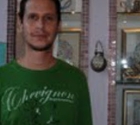 AMIT DRESSLER - HELPING THE LESS FORTUNATE
AMIT DRESSLER - HELPING THE LESS FORTUNATE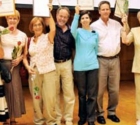 ESRA VOLUNTEER AWARD WINNERS 2010
ESRA VOLUNTEER AWARD WINNERS 2010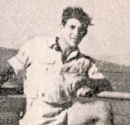 FACT OVERWHELMS FICTION
FACT OVERWHELMS FICTION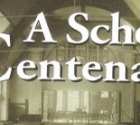 A School Centenary
A School Centenary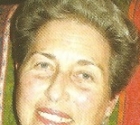 Train Trips
Train Trips-1451900978.jpg) The Agunah- The Deserted Wife
The Agunah- The Deserted Wife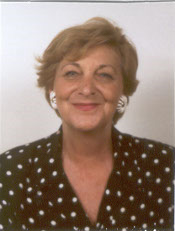 Rolly King Kohansky
Rolly King Kohansky